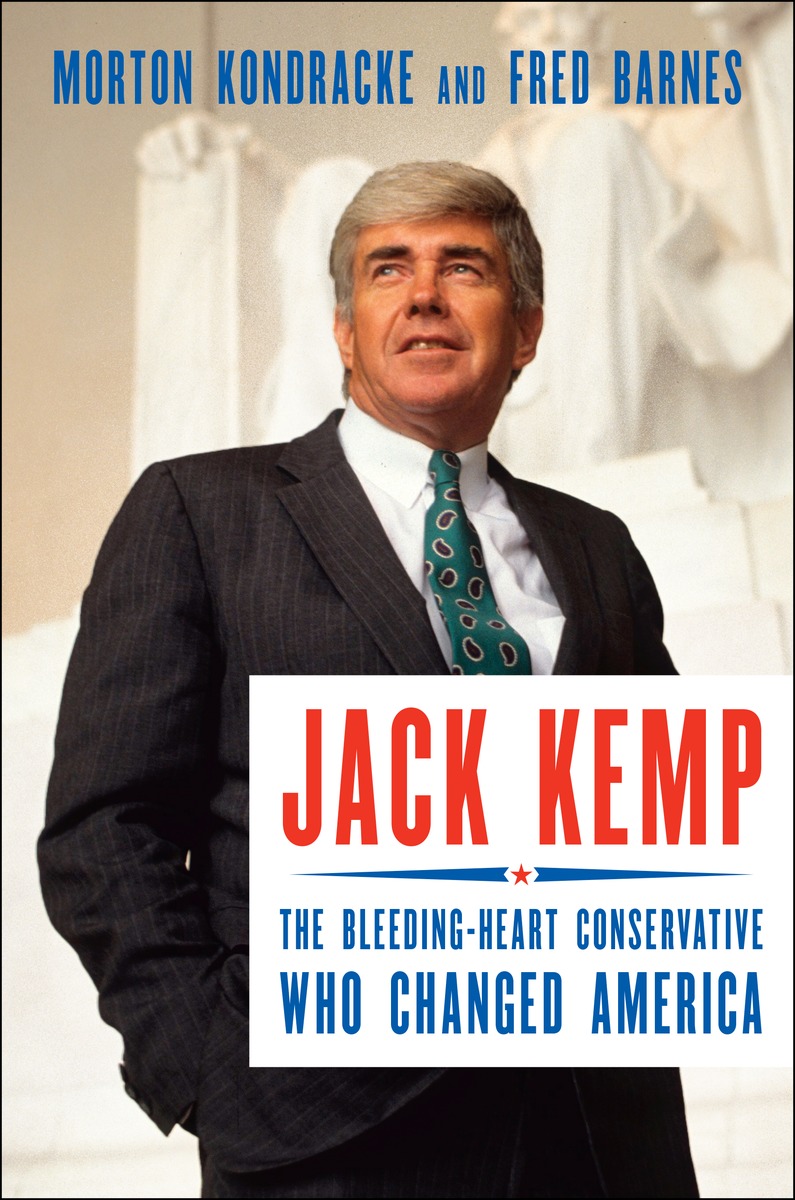
Morton Kondracke and Fred Barnes are the authors of Jack Kemp: The Bleeding-Heart Conservative Who Changed America (Sentinel / Penguin Random House).
Voters are furious with Washington, and no wonder. Political dysfunction is making it impossible for Washington to address crucial national problems—glacial economic growth, declining worker incomes, deteriorating infrastructure, mounting debt, a broken immigration system and a public education system that lags the world. Only about a quarter of U.S. likely voters think the country is headed in the right direction.
The American people want to shake the place up. But politicians need to do it the way former Republican Representative Jack Kemp did in the 1970s and ’80s: with big ideas that make life better for ordinary Americans, not by pitting one group against another as “outsiders” against “insiders” or by campaigning with insults.
Kemp, who died in 2009, never got elected President or Vice President when he ran. He was the No. 3 leader of House Republicans for seven years and later the U.S. Housing Secretary. But he accomplished great things. In this era of political turmoil, national angst and international danger, he offers as a model for what America needs in a leader.
To follow Kemp’s example, Republicans have got to be FOR stuff and DO stuff. They need to not only claim to care about ordinary people, but really care. They need to stop insulting each other and blaming all the county’s serious problems on Democrats (or illegal immigrants). Kemp said that “the purpose of a political party is not to defeat your opponent as much as it is to provide superior leadership and better ideas than the opposition.”
Kemp’s great achievement was implementation of supply side economics—lowering tax rates across the board to incentivize work, savings, investment and productivity to produce, robust growth, jobs and higher incomes. He borrowed his specific tax-cut formula from John F. Kennedy, then convinced Ronald Reagan to make it the basis of his economic program. Reagan got the top tax rate cut from 70% to 50% in 1981. In 1986 that Kemp helped pioneer, the top rate dropped to 28%.
Kemp catalyzed Reaganomics, ending a decade of high inflation and stagnant growth and producing two decades of prosperity. In 1979, only 13% of voters were satisfied; In 1986, 69% were.
Kemp’s playbook offers positive ideas to make life better for the majority of Americans: tax reform that not only lowers rates, but eliminates special interest loopholes (not just carried interest, but breaks for oil companies and other Republican constituencies), helps families and boosts the earned income tax credit; school choice, so parents aren’t condemned to send their kids to failing schools; and enterprise zones that help bring jobs to poverty areas.
But beyond that, Republicans have to be for public investment (yes, spending) on things America needs: infrastructure, medical and basic scientific research. They need to tout what they’ve actually done, for example the House passage of the 21st Century Cures Initiative, which boosts medical research, and the pending Senate passage of a rewrite of No Child Left Behind, which keeps incentives for high standards for states while eliminating onerous federal mandates. And they need to actually produce their long-promised replacement for Obamacare, not just endlessly pass bills repealing it.
Kemp, in his time, could be careless about deficits and debt. No one can be that way now; the growth of entitlements have to be controlled. But Republicans also need to eliminate subsides and regulations that benefit rich special interests, including ethanol requirements, sugar quotas and farm subsidies. The can’t just pretend to be populists; they have be populist. Kemp was.
Kemp wanted the GOP to once again be “the party of Lincoln”—Lincoln the emancipator and Lincoln the Whig. Kemp treated adversaries with respect, argued with them strictly on the basis of ideas and often partnered with Democrats on legislation. He was a fireball of energy, an optimist and an idealist who believed, like Lincoln, that the idea of America was that everyone should be able to rise to fulfill his God-given potential. Politicians today should take note.
More Must-Reads From TIME
- The 100 Most Influential People of 2024
- The Revolution of Yulia Navalnaya
- 6 Compliments That Land Every Time
- What's the Deal With the Bitcoin Halving?
- If You're Dating Right Now , You're Brave: Column
- The AI That Could Heal a Divided Internet
- Fallout Is a Brilliant Model for the Future of Video Game Adaptations
- Want Weekly Recs on What to Watch, Read, and More? Sign Up for Worth Your Time
Contact us at letters@time.com